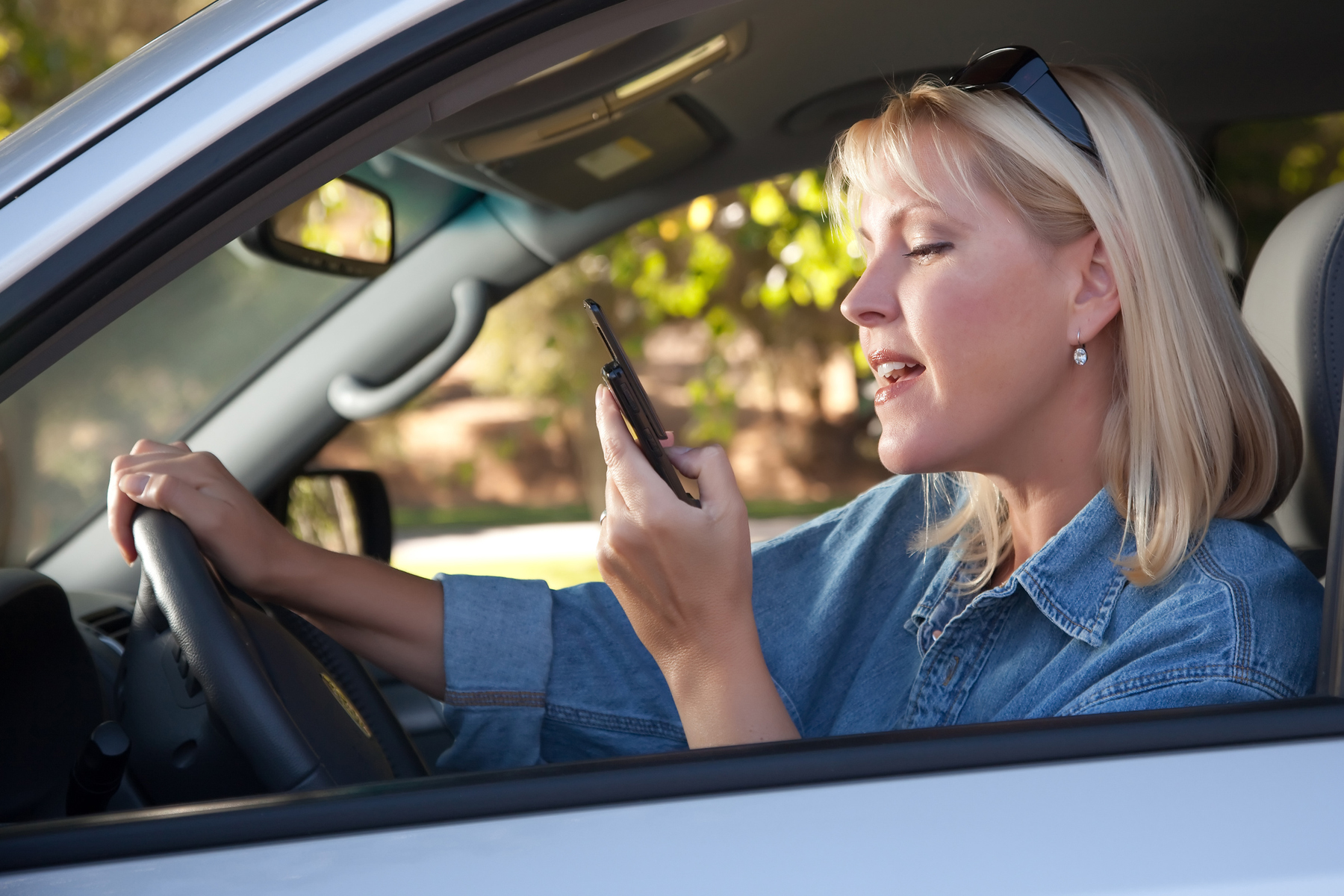Fifth of motorists use social media when driving
Despite rules preventing people from using mobiles when at the wheel, many are still flouting the law.


Sign up today and you will receive a free copy of our Future Focus 2025 report - the leading guidance on AI, cybersecurity and other IT challenges as per 700+ senior executives
You are now subscribed
Your newsletter sign-up was successful
Over a fifth of drivers check social networking sites like Facebook and Twitter whilst behind the wheel, research has shown.
Despite laws preventing motorists from using mobiles while driving, the number who admitted to taking calls when on the road has risen from eight per cent to 28 per cent, the RAC sponsored poll showed.
More than half of respondents to the survey said they had checked who a call was from when on the road, while almost a third admitted to texting when at the wheel, up from 11 per cent when compared to last year.
"Taking your eye off the road, just for a second, to read an alert or check who a call came from can have potentially fatal results," said Adrian Tink, RAC Motoring Strategist.
"This steep rise in mobile phone usage at the wheel could potentially be set to continue as more and more people embrace smartphone technology."
Even though many appear to be flouting the law, over 51 per cent of respondents said the current stipulation that offenders get points on their driving licence is the best deterrent to stop people using a hand-held mobile device behind the wheel.
The RAC recommended either having a phone on silent or completely off when driving. It also suggested using a hands-free device or simply pulling over to a safe place if the driver is desperate to use their phone.
Sign up today and you will receive a free copy of our Future Focus 2025 report - the leading guidance on AI, cybersecurity and other IT challenges as per 700+ senior executives
"The desire for people to be keep in touch and up-to-date is ever increasing and drivers no longer accept their car as a white spot' of connectivity," said Martin Reber, chief executive of SVOX, a specialist in embedded speech solutions.
"If drivers insist on staying connected, they need to start using solutions such as text-to-speech and voice recognition in the car so that they can have their emails, voicemails, texts and tweets read aloud, they can make calls and they can control their navigation system without removing their hands from the wheel."
Tom Brewster is currently an associate editor at Forbes and an award-winning journalist who covers cyber security, surveillance, and privacy. Starting his career at ITPro as a staff writer and working up to a senior staff writer role, Tom has been covering the tech industry for more than ten years and is considered one of the leading journalists in his specialism.
He is a proud alum of the University of Sheffield where he secured an undergraduate degree in English Literature before undertaking a certification from General Assembly in web development.
-
 Pulsant unveils high-density data center in Milton Keynes
Pulsant unveils high-density data center in Milton KeynesNews The company is touting ultra-low latency, international connectivity, and UK sovereign compute power to tempt customers out of London
-
 Anthropic Labs chief claims 'Claude is now writing Claude'
Anthropic Labs chief claims 'Claude is now writing Claude'News Internal teams at Anthropic are supercharging production and shoring up code security with Claude, claims executive
-
 How to use LinkedIn to market yourself as an IT professional
How to use LinkedIn to market yourself as an IT professionalwhitepaper Whether you’re updating your LinkedIn profile or creating one for the first time, it’s critical to remain consistent and credible if you hope to raise your profile within the IT industry
-
 Who owns the data used to train AI?
Who owns the data used to train AI?Analysis Elon Musk says he owns it – but Twitter’s terms and conditions suggest otherwise
-
 Meta to pay $725 million in Cambridge Analytica lawsuit settlement
Meta to pay $725 million in Cambridge Analytica lawsuit settlementNews The settlement closes the long-running lawsuit into how Facebook's owner, Meta, handled the Cambridge Analytica scandal
-
 Elon Musk confirms Twitter CEO resignation, allegations of investor influence raised
Elon Musk confirms Twitter CEO resignation, allegations of investor influence raisedNews Questions have surfaced over whether Musk hid the true reason why he was being ousted as Twitter CEO behind a poll in which the majority of users voted for his resignation
-
 Businesses to receive unique Twitter verification badge in platform overhaul
Businesses to receive unique Twitter verification badge in platform overhaulNews There will be new verification systems for businesses, governments, and individuals - each receiving differently coloured checkmarks
-
 Ex-Twitter tech lead says platform's infrastructure can sustain engineering layoffs
Ex-Twitter tech lead says platform's infrastructure can sustain engineering layoffsNews Barring major changes the platform contains the automated systems to keep it afloat, but cuts could weaken failsafes further
-
 ‘Hardcore’ Musk decimates Twitter staff benefits, mandates weekly code reviews
‘Hardcore’ Musk decimates Twitter staff benefits, mandates weekly code reviewsNews The new plans from the CEO have been revealed through a series of leaked internal memos
-
 Twitter could charge $20 a month for 'blue tick' verification, following Musk takeover
Twitter could charge $20 a month for 'blue tick' verification, following Musk takeoverNews Developers have allegedly been given just seven days to implement the changes or face being fired
